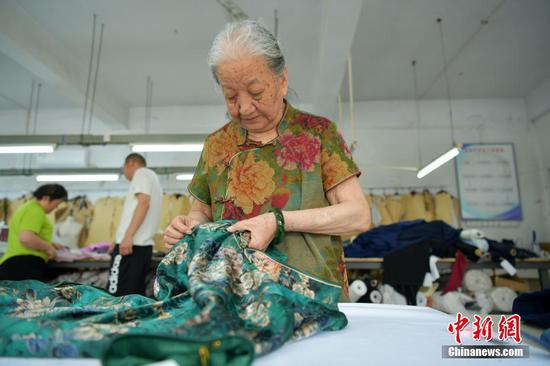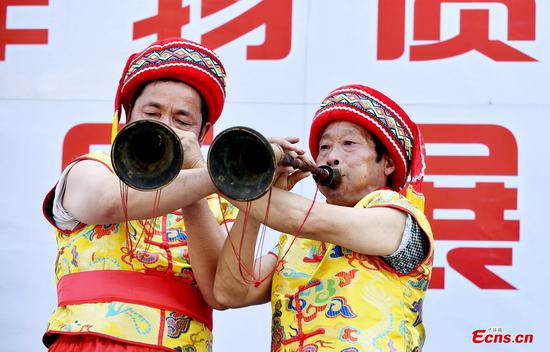Measure targets sanctions that interfere in China's internal affairs
China's top legislature is deliberating a draft law on opposing foreign sanctions to resolutely safeguard the country's sovereignty, dignity and core interests.
The draft law was submitted on Monday to the ongoing session of the Standing Committee of the 13th National People's Congress, China's top legislature, for a second review.
For some time, a few Western countries, for the reason of political manipulation and ideological bias, have made use of various excuses, including those involving the Xinjiang Uygur autonomous region and the Hong Kong Special Administrative Region, to spread rumors on and smear, contain and suppress China, according to the spokesperson office of the Legislative Affairs Commission of the NPC Standing Committee.
They in particular violated international law and basic principles of international relations, initiating sanctions in line with their own laws against Chinese State organs, organizations and staff members, thereby grossly interfering in China's internal affairs, the office said.
The Chinese government has strongly condemned such hegemonistic acts, and people from all walks of life have also expressed great indignation about such behavior, it said.
To resolutely safeguard China's sovereignty, dignity and core interests, as well as to oppose Western hegemony and power politics, the Chinese government has announced corresponding countermeasures against entities and individuals of relevant countries several times since the beginning of the year, giving them "a taste of their own medicine", it added.
Around the time of this year's sessions of the NPC and the National Committee of the Chinese People's Political Consultative Conference, known as the two sessions, some NPC deputies and political advisers and a number of people from various industries called for a law opposing foreign sanctions. They said such legislation is essential and will provide stronger legal support and guarantees for the country in fighting discriminatory measures of foreign nations, according to the office.
In addition, the annual Work Report of the NPC Standing Committee, which was delivered in March, also highlighted the importance of drafting laws regarding foreign affairs, saying the next major task is to upgrade the legal toolkit for meeting challenges and guarding against risks in order to oppose foreign sanctions, interference and long-arm jurisdiction.
Based on reviews of legislative advice, conclusions of the country's anti-sanction measures, studies of similar legislation in other countries and after soliciting opinions from the Communist Party of China Central Committee and national government departments, the commission drafted the law and submitted it to the top legislature in April for the first review.
The draft at that time was widely approved by members of the NPC Standing Committee, and some suggestions on revisions were submitted, the commission said. The second version, which was submitted to the legislature for further review on Monday, incorporated the advice and made some improvements.
During the session this week, the NPC Standing Committee also began to review some other draft laws, including those on data security, the Hainan Free Trade Port, the stamp tax, practicing physicians, legal aid and protection of the status, rights and interests of military personnel.
Draft revisions to the Law on Military Facilities Protection and the Vocational Education Law and draft amendments to the Law on Workplace Safety and the Audit Law were also submitted to the top legislature for review.
Lawmakers are also deliberating several reports, including those on the central government's final accounts for 2020 and a report on the ecological protection of the Yangtze River basin.




















































